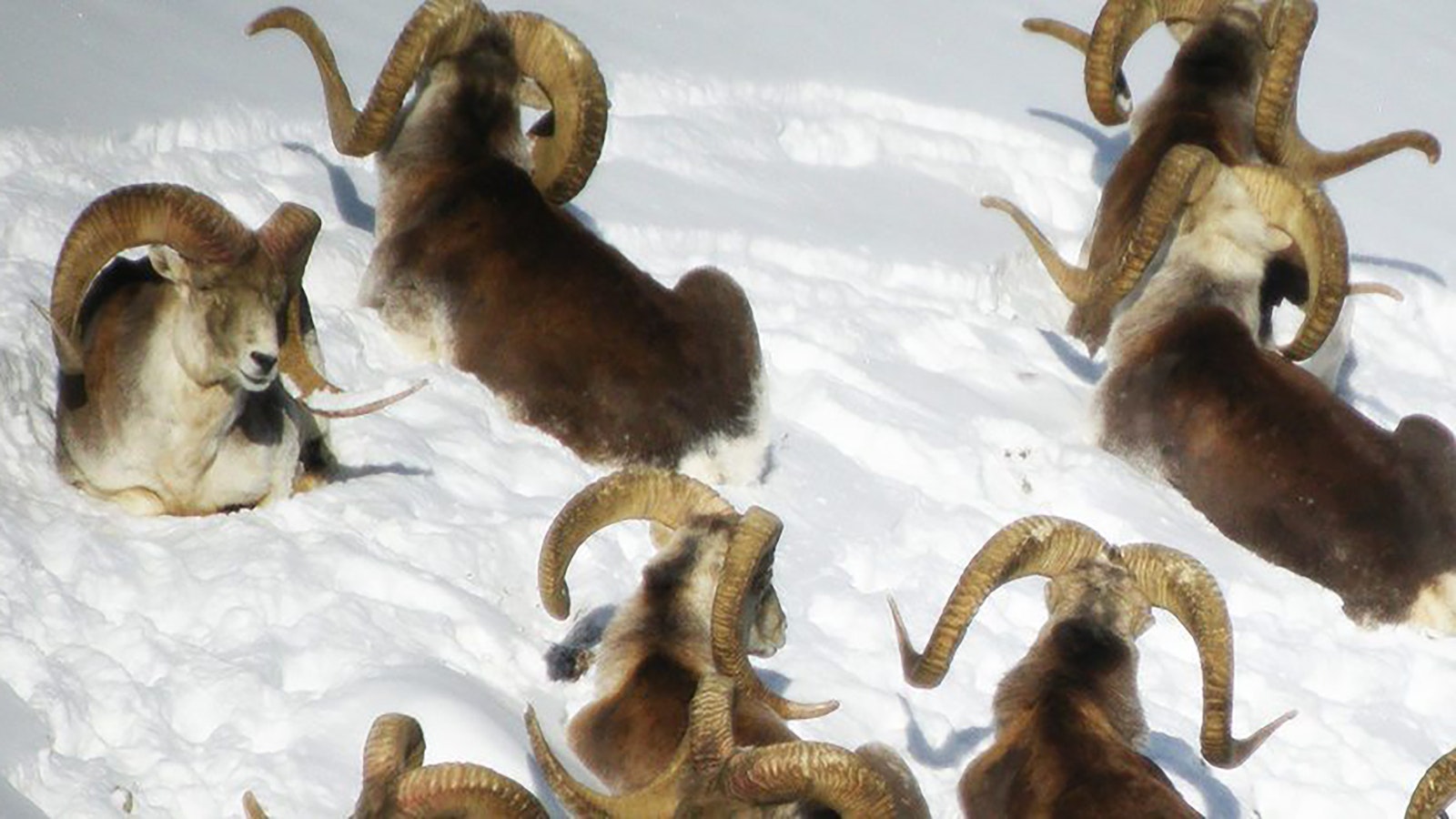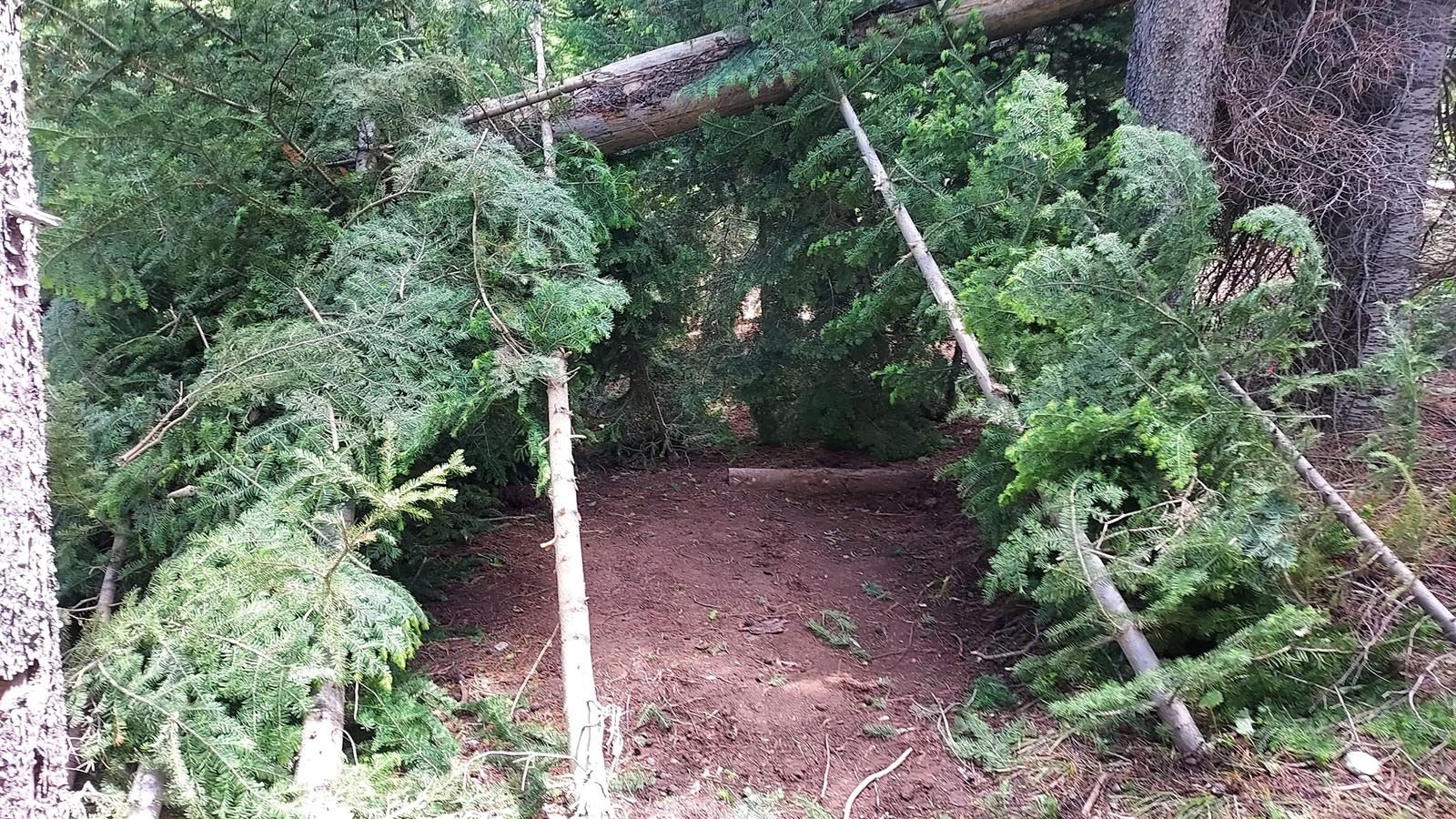Like something akin to “Jurassic Park,” an 80-year-old Montana man was nailed on federal charges stemming from creating huge hybrid bighorn sheep by using genetic material harvested from Asiatic wild sheep.
Arthur “Jack” Schubarth of Vaughn, Montana, on Tuesday pleaded guilty to two felony wildlife charges, conspiracy to violate the Lacey Act and substantively violating the Lacey Act, according to the U.S. Department of Justice.
The Lacey Act prohibits interstate trade in wildlife that has been taken, possessed, transported or sold in violation of federal or state law.
Each count that Schubarth faces carries a maximum penalty of five years in prison, a $250,000 fine and three years of supervised release. He’s scheduled to be sentenced July 11 in U.S. District Court for the District of Montana.
Schubarth and at least five others used genetic material from parts from the world’s largest wild sheep species, Central Asia’s Marco Polo Argali sheep. They used cloning and artificial insemination to create hybrids.
The hybrids were created in hopes that they’d fetch a handsome profit being sold to fenced-in “hunting preserves” in places such as Texas, according to the Department of Justice.
‘Hornography’
Some Wyoming wildlife biologists balked at that kind of manipulation of wild animals for profit.
“’Hornography’ in its truest form,” Kevin Monteith told Cowboy State Daily. He’s a biologist with the Haub School of Environment and Natural Resources at the University of Wyoming.
The Montana case has alarming implications, said Katie Cheesbrough, Executive Director Wyoming Wild Sheep Foundation.
“Clearly, there’s a lot to be concerned about here, given the legalities of importing animal parts into the U.S., “ she told Cowboy State Daily.
Exotic species escaping and competing with or tainting the genetics of native wildlife is an abiding concern, she said, adding that she’s grateful that exotic species are frowned upon in Wyoming.
“Wyoming has been really careful about not importing these non-native species,” Chessbrough said.
Monteith said that an exotic or hybrid species escaping and causing genetic “spillover” by attempting to breed with native wildlife could be a disaster.
“Animals are adapted to their environment,” he said. “Spillover would have ramifications regardless, whether they were successful or not.”

Weird Science
Schubarth and his co-conspirators were involved in an elaborate scheme that seems stranger than fiction, according to the Department of Justice.
Schubarth owns the 215-acre Sun River Enterprises ranch near Vaughn, which he described as an “alternative livestock” ranch. The ranch buys, sells and breeds animals such as mountain sheep and mountain goats.
From 2013-2021, they created larger hybrid sheep to make a tidy profit from shooting preserves.
Schubarth sent genetic material from illegally-obtained Marco Polo sheep parts to labs. The labs created cloned embryos, which Schubarth implanted in bighorn ewes on his ranch.
One of them gave birth to a genetically pure Marco Polo that he named “Montana Mountain King (MMK)” MMK’s sperm was then used to inseminate various other species of wild sheep ewes, producing the huge mutants.
Dangerous Meddling
Cheesbrough said Marco Polo sheep are admired the world over for good reason, but trying to introduce their genetics to North America was dangerous meddling.
“They (Marco Polo sheep) have really cool spiraling horns beyond the full curl of bighorn sheep native to North America. With that said, they are also a vastly different species from Wyoming’s native bighorn sheep,” she said. “Although the physical outcome of hybridizing an Argali and Rocky Mountain bighorn sheep creates a sense of curiosity, it's not a good idea.”
Invasive species have caused havoc in other areas, she added.
“The Audad, or Barbary sheep, although not a hybrid, is a species of wild sheep more closely related to goats not native to North America that has absolutely invaded places like Texas. They reproduce more quickly than native species and devastatingly outcompete desert bighorn sheep and, in some cases, livestock for habitat and spread diseases to native wildlife,” Cheesbrough said.
She’s glad that Schubarth got busted, because a hybrid sheep ring in Montana was too close for comfort to Wyoming’s prized bighorn herds.
“Wyoming’s bighorn sheep are up against enough challenges as it is without having to compete with an Argali hybrid, too,” Cheesbrough said.
Mark Heinz can be reached at mark@cowboystatedaily.com.





